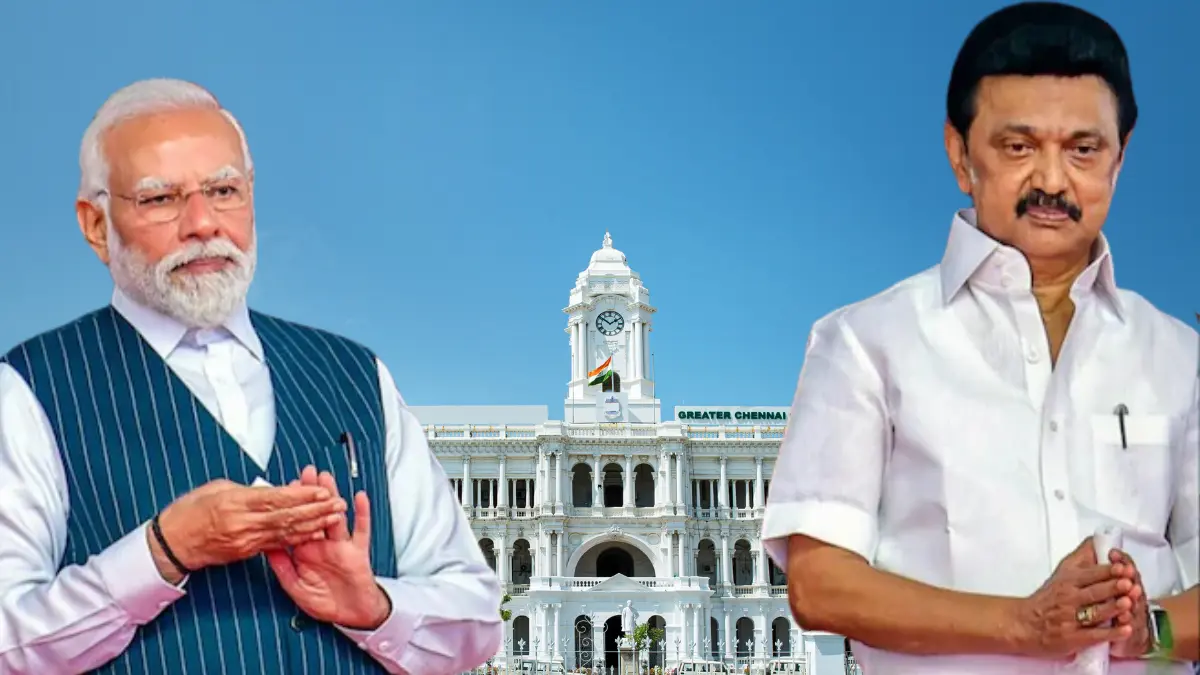The national party had not won a single seat in Tamil Nadu in the 2019 as well as in the 2024 Lok Sabha polls, which had been swept by the DMK alliance with 38 of 39 seats and 40/40 respectively. The Bharatiya Janata Party (BJP) has struggled to win seats in Tamil Nadu for several reasons. Here are some key factors:
- Dravidian Dominance:
- Tamil Nadu’s political landscape has been dominated by Dravidian parties (DMK and AIADMK) for decades. These parties have strong roots in the state’s social and political fabric, advocating for regional pride, social justice, and state autonomy. The Dravidian movement’s anti-Hindi and anti-north sentiment also impacts BJP’s reception, as it is often perceived as a party representing northern and Hindi-speaking interests.
- Cultural and Linguistic Factors:
- Tamil Nadu has a strong sense of linguistic and cultural identity. The BJP’s emphasis on Hindi and its perceived promotion of a homogeneous national culture sometimes clash with Tamil Nadu’s emphasis on preserving its unique language and culture.
- Secular vs. Communal Politics:
- The BJP’s image as a Hindu nationalist party does not align well with Tamil Nadu’s secular political culture. Dravidian parties have historically championed secularism and social justice, which resonate more with the electorate.
- Strong Regional Leadership:
- Leaders like M. Karunanidhi, J. Jayalalithaa, and currently M.K. Stalin have established strong personal and party followings. Their leadership and regional focus have overshadowed national parties like the BJP.
- Electoral Alliances:
- The BJP has often relied on alliances with regional parties like the AIADMK to gain a foothold in Tamil Nadu. However, these alliances haven’t always translated into significant seat wins for the BJP itself, as voters tend to support the regional party’s candidates over the BJP’s.
- Perception of National Policies:
- Some of the BJP’s national policies and actions, such as the push for a uniform civil code, cow protection laws, and the handling of the NEET medical entrance exam, have been unpopular in Tamil Nadu. These policies are seen as infringing on the state’s rights and cultural identity.
- Organizational Weakness:
- Compared to the deeply entrenched Dravidian parties, the BJP’s organizational structure and grassroots presence in Tamil Nadu are relatively weak. This hampers their ability to mobilize voters and build a strong support base.
- Campaign Strategies:
- The BJP’s campaign strategies, often focused on issues that resonate more with northern states, may not always align with the priorities and concerns of Tamil Nadu’s electorate.
In summary, the BJP’s inability to win seats in Tamil Nadu stems from a combination of the state’s strong regional political identity, cultural and linguistic factors, the dominance of Dravidian parties, and the party’s perceived disconnect with the state’s unique socio-political landscape.
Tamil Nadu holds a significant place in Indian politics for several reasons, and its influence in the 2024 elections continues this trend. Here are some key factors:
- Historical Legacy:
- Tamil Nadu has a rich political history with leaders like K. Kamaraj, M.G. Ramachandran (MGR), and J. Jayalalithaa, who have left lasting legacies. The Dravidian movement, led by figures like Periyar E.V. Ramasamy, has deeply influenced the state’s political landscape, emphasizing social justice, anti-caste sentiments, and regional pride.
- Dravidian Politics:
- The dominance of Dravidian parties (DMK and AIADMK) has shaped the political narrative in Tamil Nadu. These parties have consistently focused on state autonomy, social welfare, and linguistic pride, making them distinct from national parties.
- High Voter Turnout:
- Tamil Nadu consistently records high voter turnout during elections, reflecting the political engagement of its populace. This engagement often translates to significant political influence at the national level.
- Social Welfare Programs:
- The state is known for its innovative social welfare schemes, such as the mid-day meal scheme, which has set a benchmark for other states. These programs have helped garner strong public support for the ruling parties.
- Economic Development:
- Tamil Nadu is one of the most industrialized and urbanized states in India. Its economic performance, with significant contributions from sectors like IT, manufacturing, and agriculture, enhances its political clout.
- Strategic Electoral Importance:
- Tamil Nadu sends a substantial number of MPs to the Lok Sabha (39 seats), making it a crucial state in the formation of the central government. Political parties at the national level, including the BJP and Congress, often form alliances with regional parties in Tamil Nadu to secure these seats.
- Cultural Influence:
- The state’s vibrant culture, language, and cinema industry (Kollywood) also play a role in politics. Politicians often use cinema as a medium to reach the masses, with many film stars transitioning into successful political careers.
2024 Elections
- Alliance Dynamics:
- The 2024 elections are seeing significant alliance formations in Tamil Nadu. The DMK-led alliance includes major national and regional parties, while the AIADMK has historically aligned with the BJP. These alliances are crucial for both state and national electoral outcomes.
- Emerging Political Trends:
- New political parties and movements, such as those led by film stars Kamal Haasan (Makkal Needhi Maiam) and Rajinikanth (though he later decided not to enter politics), have added fresh dimensions to the political landscape.
- Key Issues:
- Key issues like NEET, state autonomy, linguistic pride, and social justice continue to dominate the political discourse. The handling of the COVID-19 pandemic and economic recovery are also pivotal in shaping voter preferences.
- Leadership:
- Current leaders, such as MK Stalin (DMK) and Edappadi K. Palaniswami (AIADMK), along with their track records and promises, play a significant role in influencing the electorate.
In conclusion, Tamil Nadu’s importance in Indian politics and the 2024 elections is rooted in its historical, cultural, and socio-economic context, making it a key player in shaping the country’s political landscape.


